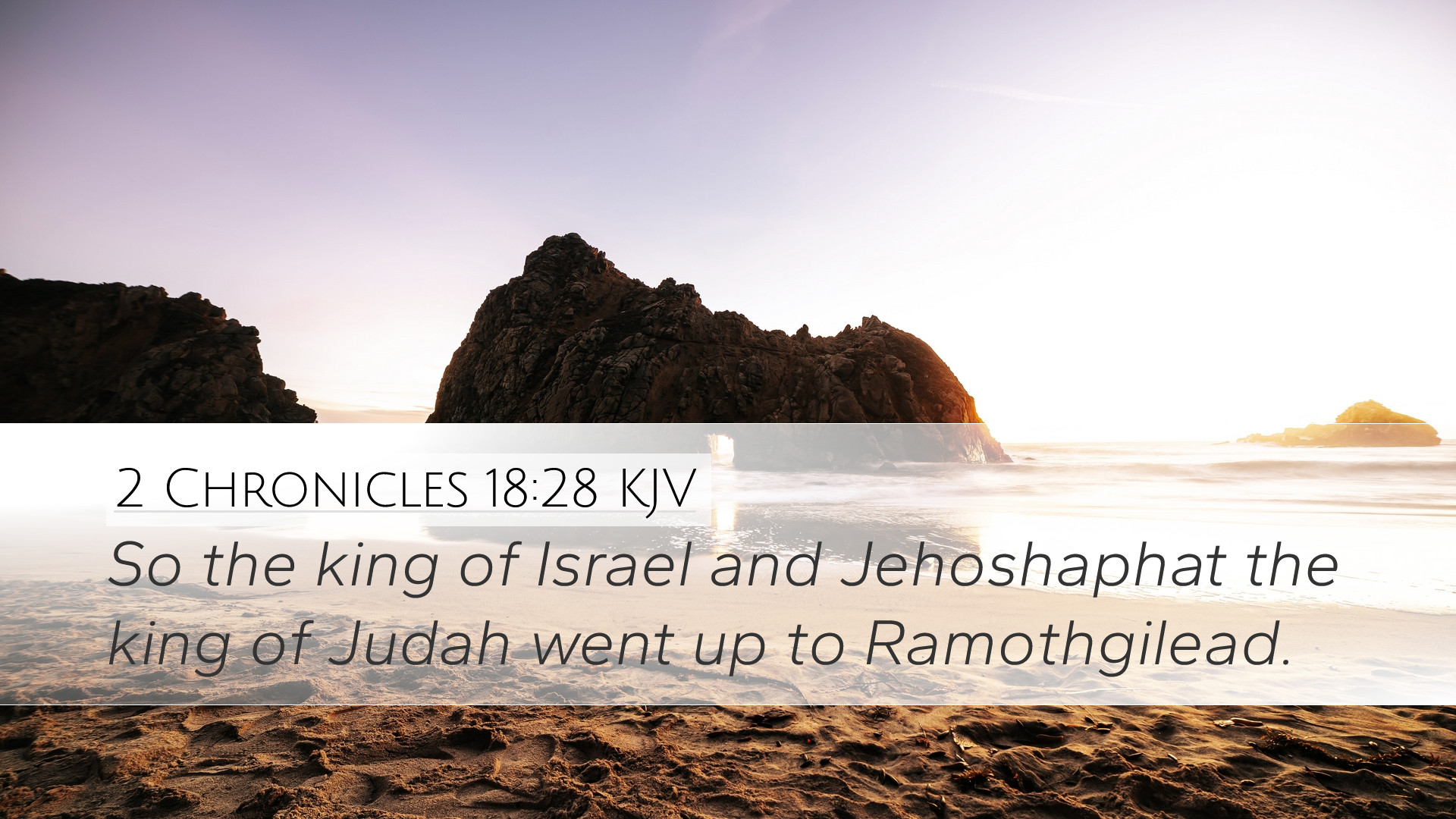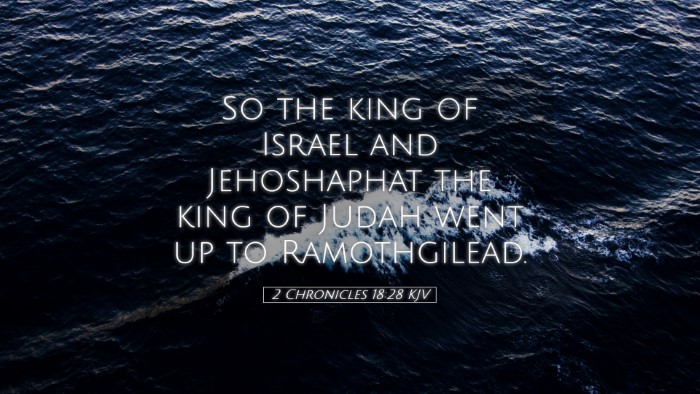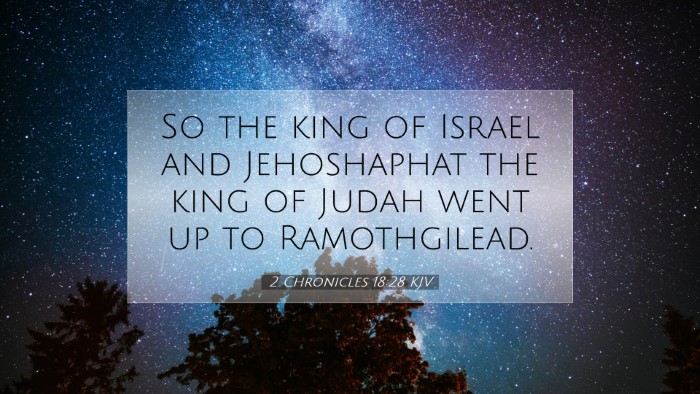Commentary on 2 Chronicles 18:28
Verse Context and Historical Background
2 Chronicles 18:28 describes a significant moment in the life of King Jehoshaphat of Judah as he allies himself with Ahab, king of Israel. The preceding chapters highlight Judah's decline and Israel's increasing moral ambiguity. This alliance sets the stage for a critical battle, where prophetic discourse and divine decrees converge, illuminating the themes of righteousness, judgment, and divine sovereignty.
Text of 2 Chronicles 18:28
“So the king of Israel and Jehoshaphat the king of Judah went up to Ramoth-gilead.” (2 Chronicles 18:28, KJV)
Analysis and Insights
Matthew Henry's Commentary
Matthew Henry reflects on the nature of the alliance between Jehoshaphat and Ahab. He emphasizes Jehoshaphat's tragic decision to join forces with a king led by false prophets. Henry warns that such associations can lead to spiritual compromise and ethical peril. The context reveals a critical lack of discernment in the king of Judah, demonstrating how the desire for political strength can obscure moral judgment.
Albert Barnes' Notes
Albert Barnes emphasizes the geopolitical implications of this alliance. He posits that Jehoshaphat's participation in the warfare against Syria underscores the historical animosities of the period. Barnes highlights the prophetic warning previously given regarding Ahab's character and the fate that awaits him due to his consistent disobedience to God's commands. This illuminates the principle that engaging with those who oppose divine truth can result in one’s own spiritual detriment.
Adam Clarke's Commentary
Adam Clarke offers a deeper theological insight into the prophetic voice present during this time. He suggests that the context of this battle reveals God's sovereignty, even amidst human rebellion. Clarke points out the significance of Micaiah’s prophecy, which foreshadows Ahab's demise. The alliance, then, serves as an instrument of God’s judgment, demonstrating that God’s will will ultimately prevail despite human folly and discord.
Theological Reflections
This verse, while seemingly straightforward, encapsulates critical theological principles that resonate with pastors, students, and theologians:
- The Danger of Compromise: Jehoshaphat's decision showcases the risks associated with compromising one's values for political expediency.
- The Role of Prophecy: The prophetic warnings yet unheeded serve as a reminder of the importance of heeding God’s voice in decisions of significance.
- Divine Sovereignty: The interaction of divine providence in human affairs illustrates God's ultimate control over history and the destinies of nations.
Applications for Ministry and Personal Faith
For modern believers and leaders, 2 Chronicles 18:28 calls for reflection on the following applications:
- Discernment in Alliances: Just as Jehoshaphat's failure to discern Ahab's character led to disastrous outcomes, so too must today’s leaders be cautious in forging partnerships.
- Commitment to Biblical Truth: Aligning with entities or individuals who do not uphold scriptural fidelity can lead to personal and communal detriment.
- Awareness of Spiritual Battle: The passage reminds readers of the ongoing spiritual warfare that requires vigilance and reliance on God’s guidance.
Conclusion
In summary, 2 Chronicles 18:28 serves as a sobering portrait of the complexities of leadership and alliance in the biblical narrative. By analyzing the insights from Matthew Henry, Albert Barnes, and Adam Clarke, one can appreciate the profound implications of this verse. It stands as both a historical account and a spiritual admonition, inviting deeper reflection on fidelity to God in all aspects of life.


